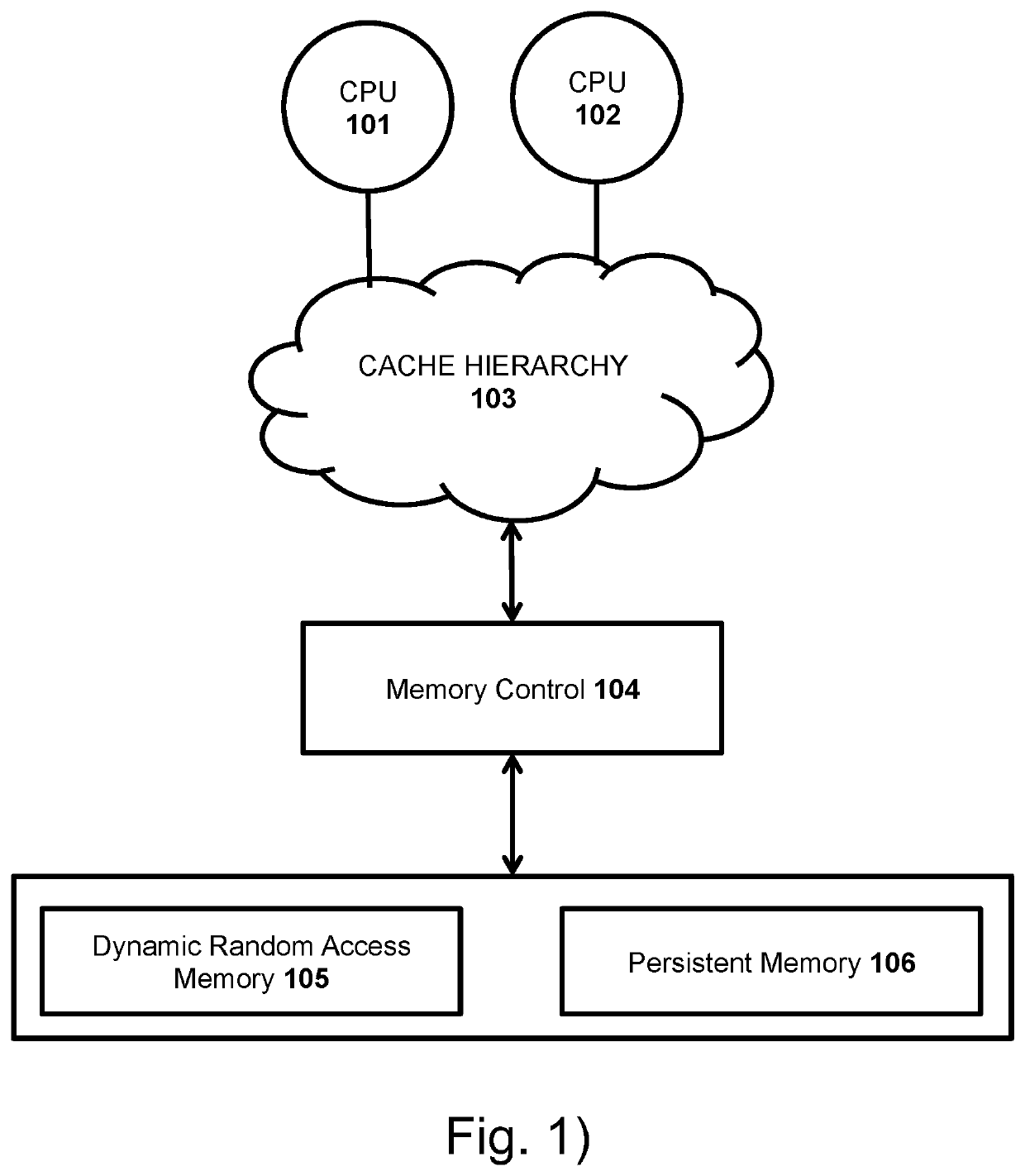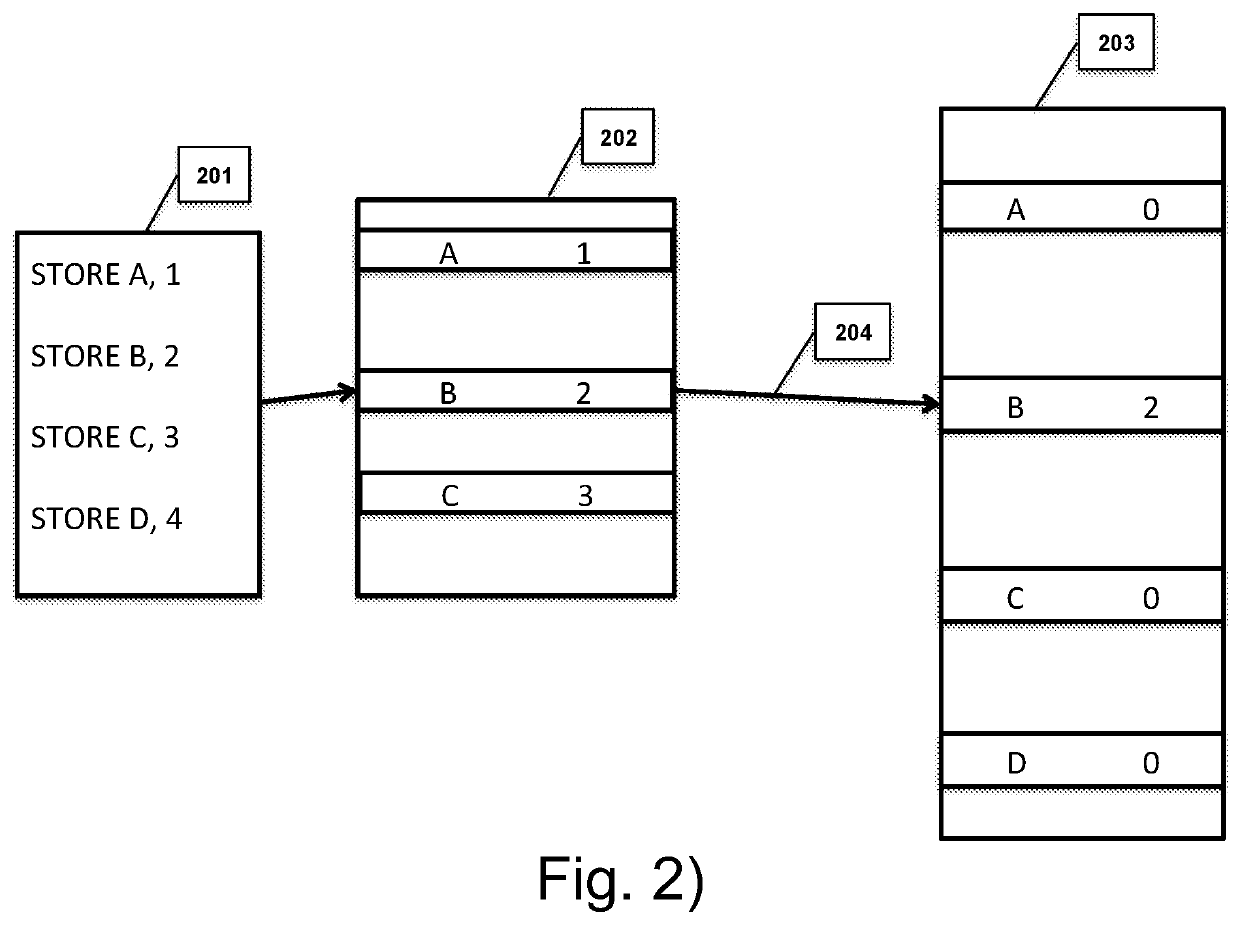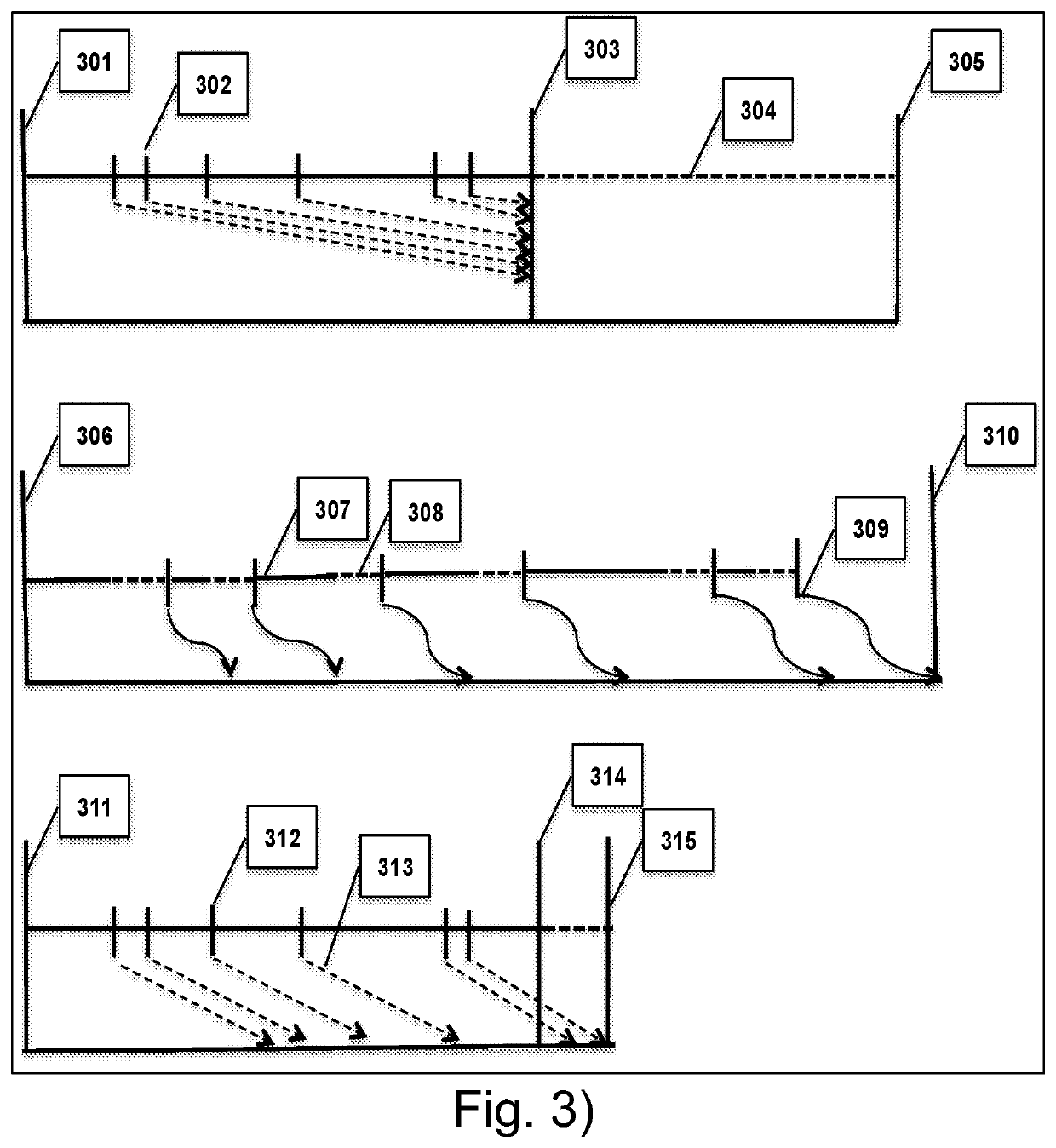System and method for atomic persistence in storage class memory
a technology of storage class and memory, applied in the field of system and, can solve the problems of data being caught, new main-memory databases (mmdb), and requiring low latency and read intensiveness
- Summary
- Abstract
- Description
- Claims
- Application Information
AI Technical Summary
Benefits of technology
Problems solved by technology
Method used
Image
Examples
Embodiment Construction
[0032]The emerging field of byte-addressable, Non-Volatile Memory (NVM) technology unveils a new area for researchers in both computer architecture and software design. Storage Class Memory (SCM) is a group of new technologies that include but is not limited to Phase Change Memory (PCM), battery backed DRAM, Magnetoresistive Random Access Memory, Spin-Transfer Torque Random Access Memory, Flash-backed DRAM, Resistive Random Access Memory, and other memristor based technologies. PCM shows promise in that it can achieve a high chip density and speed. These properties will enable the creation of systems with large amounts of persistent, byte-addressable memory that can replace slow, block based Flash or hard disk drives.
[0033]Now referring to FIG. 1. A Central Processing Unit (CPU) 101 is connected to a cache hierarchy 103 comprising one or more levels of caching. Additional Central Processing Units, such as 102, may be attached to the cache hierarchy 103. If so, then the cache hierarc...
PUM
 Login to View More
Login to View More Abstract
Description
Claims
Application Information
 Login to View More
Login to View More - R&D
- Intellectual Property
- Life Sciences
- Materials
- Tech Scout
- Unparalleled Data Quality
- Higher Quality Content
- 60% Fewer Hallucinations
Browse by: Latest US Patents, China's latest patents, Technical Efficacy Thesaurus, Application Domain, Technology Topic, Popular Technical Reports.
© 2025 PatSnap. All rights reserved.Legal|Privacy policy|Modern Slavery Act Transparency Statement|Sitemap|About US| Contact US: help@patsnap.com



